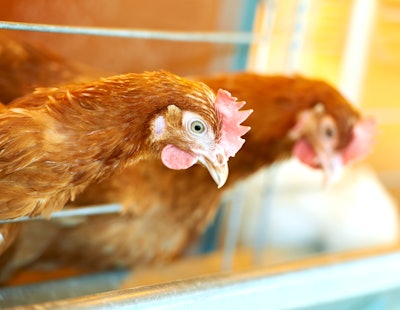
Nutrition plays a central role in the welfare of hens, yet the aspect of layer nutrition is often overlooked.
Freedom from hunger and thirst constitute one of the five freedoms identified in the UK Report of the Technical Committee to Inquire into the Welfare of Animals Kept under Intensive Livestock Systems. More commonly known as the Brambell Report, the findings were published as long ago as 1965 yet, still today, good nutrition in animal production is often taken for granted.
This might be because ration formulation is geared towards meeting birds’ needs at the least cost, thereby achieving optimum productivity. This makes feed more of an economic rather a welfare issue.
If you consider livestock in the Maasai steppe in Tanzania roaming for hours in search of fodder, and that have access to sole watering point once a day, it becomes evident that nutrition is a key welfare component.
Egg production takes its toll
During egg production, laying hens will produce a number of eggs easily equivalent to 10 times their own weight and deposit about half their weight in calcium in eggshells.
This constant mobilization of calcium from the medullary bones takes a toll on laying hens’ health and welfare. By ensuring that they have access to a rapidly metabolized and utilized source of vitamin D, nutritionists are not only making sure that they are receiving the right vitamin D to guarantee optimum egg production, but also to contribute to their welfare.
Prebiotics, probiotics and enzymes are other nutritional ingredients serving this dual purpose. Probiotics and prebiotics encourage beneficial gut flora, which contribute to optimum nutrient utilization and promote gut health.
Health is a key component in animal welfare, and some would even argue that it is the most important. Enzymes added to diet formulation also contribute to better welfare, while proteases alter the allergenic proteins in poultry rations which reduce levels of oxidative stress and gut inflammation.
We should be better promoting the value of certain feed ingredients in aiding bird welfare. There are numerous options available to egg producers. It is not only laying hen welfare that is enhanced, but decisions made by nutritionists can also help the welfare of the planet.

















